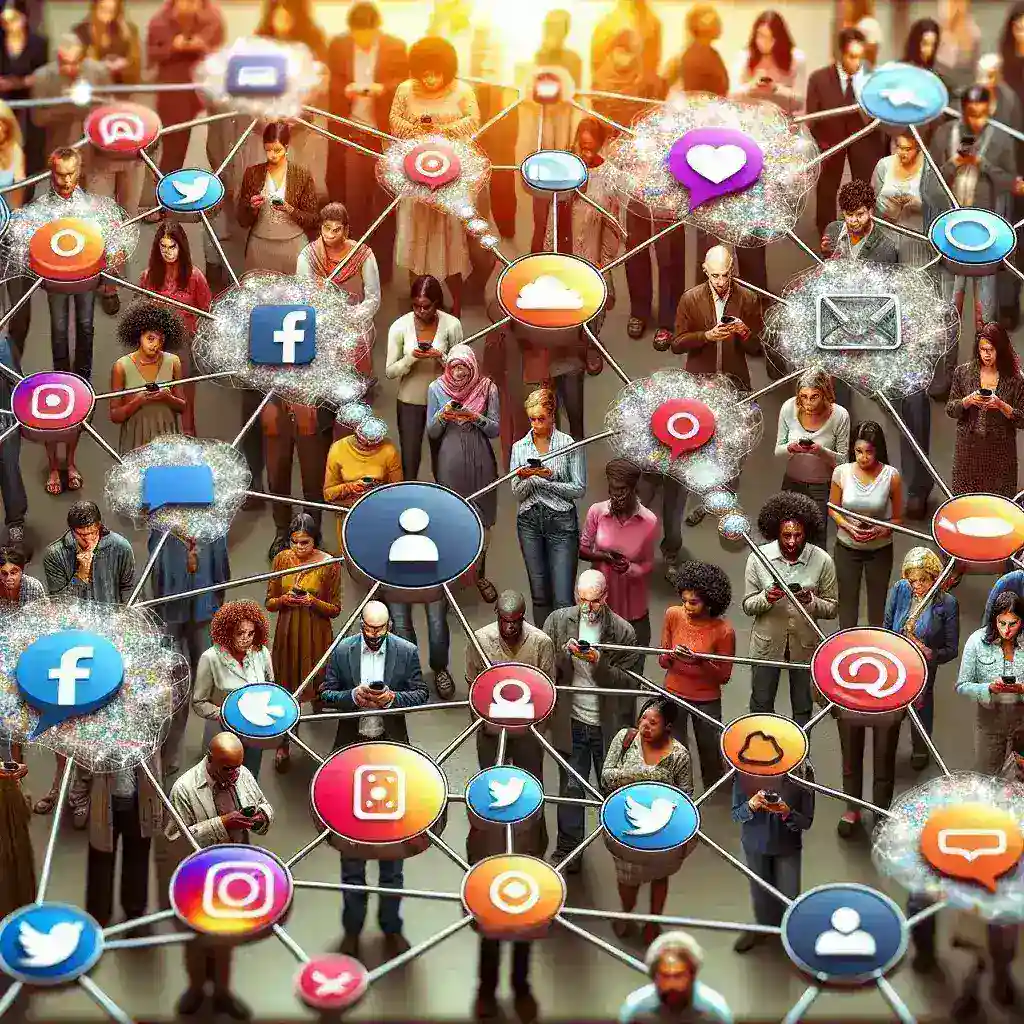In the digital age, social media platforms have become central to how information is disseminated and consumed. But behind each post, like, and share, there’s a hidden driver: the algorithm. Social media algorithms curate content to match users’ interests, but their influence on public opinion is profound and multifaceted. This article delves into how these algorithms shape our perception, decision-making, and the broader implications for society.
Understanding Social Media Algorithms
Social media algorithms are sets of rules and artificial intelligence (AI) models designed to prioritize content that appears on users’ feeds. These algorithms analyze various data points such as user behavior, engagement patterns, and content popularity to personalize their experience. Every interaction—whether it’s liking a post, commenting, or sharing—feeds back into the algorithm, refining future content delivery.
The Role of Machine Learning
Machine learning plays a crucial role in these algorithms. It allows the system to continuously learn from user data, adapting to new preferences and trends. This dynamic adjustment aims to keep users engaged for as long as possible, enhancing the platform’s ability to display targeted advertisements and other monetized content.
The Impact on Public Opinion
The personalized nature of social media feeds means that users are often exposed predominantly to content that aligns with their existing beliefs and interests. This phenomenon, known as an echo chamber, amplifies certain viewpoints while marginalizing others.
Echo Chambers and Filter Bubbles
Echo chambers and filter bubbles create an environment where users only encounter information that confirms their preconceptions. This selective exposure can reinforce biases, reduce exposure to diverse perspectives, and exacerbate polarization. When individuals are not presented with contrasting views, it becomes challenging to foster informed and balanced opinions.
Viral Misinformation
Another significant issue is the spread of misinformation. Social media algorithms prioritize content that generates high engagement, which often includes sensational or controversial material. Misinformation can spread rapidly, influencing public opinion based on false or misleading information.
Implications for Democracy
The influence of social media algorithms extends to the democratic process. Election campaigns and political discourse increasingly play out on social platforms, where algorithms may sway voter perceptions. The manipulation of these algorithms through tactics like micro-targeting and bots poses a threat to fair and equitable democratic engagement.
Micro-targeting and Political Ads
Micro-targeting allows political campaigns to deliver tailored messages to specific groups of voters. While this can increase engagement, it also raises ethical concerns about transparency and manipulation. Users may not be aware that the content they see is tailored to influence their political beliefs.
The Role of Bots and Fake Accounts
Bots and fake accounts can manipulate algorithms by artificially inflating the popularity of content. This can create a false sense of consensus or urgency, pressuring legitimate users to conform to the manipulated narrative. The presence of bots can distort genuine public opinion and undermine trust in the platform.
Potential Solutions and Mitigation Strategies
Addressing the negative impacts of social media algorithms on public opinion requires a multifaceted approach involving platform policies, user education, and technological innovation.
Algorithm Transparency
One proposed solution is greater transparency in how algorithms operate. By understanding the criteria that determine content rankings, users and regulators can better assess the fairness and impact of these systems.
Content Moderation and Fact-Checking
Enhancing content moderation and partnering with fact-checking organizations can help combat misinformation. Platforms can implement more robust systems to identify and limit the spread of false information.
User Education
Educating users about how algorithms function and encouraging critical thinking can empower individuals to question the content they encounter. Media literacy programs can play a key role in fostering a more informed and discerning public.
The Future of Social Media Algorithms
As technology evolves, so too will social media algorithms. Future developments may include more sophisticated personalization tools and enhanced measures to protect user well-being. The challenge lies in balancing user engagement with ethical considerations and the societal need for diverse and reliable information sources.
In conclusion, while social media algorithms have significantly enhanced the user experience, they also wield substantial power over public opinion. Recognizing their influence is the first step towards ensuring that social media remains a tool for positive and informed discourse in our increasingly digital world.

